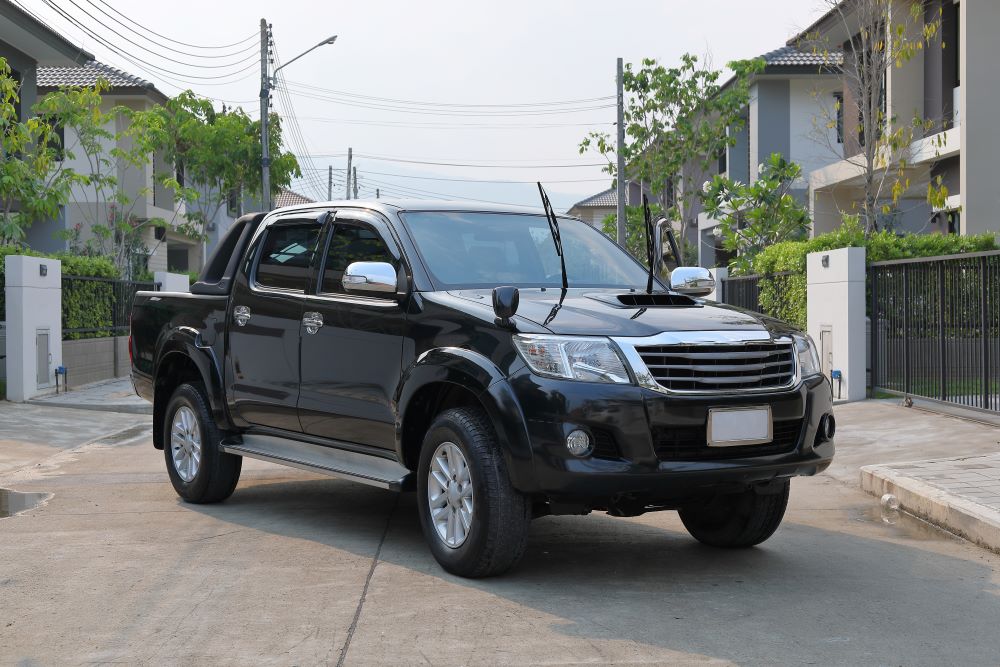Double Cab Pickup Tax Changes in 2025: What Business Owners Need to Know
There is a double cab tax changes are coming in 2025, and if you’re a business owner or fleet manager, these updates could have a significant impact on your finances. Understanding these tax changes now can help you plan ahead and avoid unexpected costs. This article will break down the key details of the new tax regulations and explain what they mean for you.
What Are the Current Tax Rules for Double Cab Pickups?
Currently, many double cab pickups are classified as light commercial vehicles (LCVs) under UK tax law. This classification has allowed business buyers to benefit from:
- Lower Benefit-in-Kind (BIK) rates: Employees using double cab pickups for both business and private use have historically enjoyed lower BIK tax compared to cars.
- Favourable VAT treatment: Businesses can reclaim VAT on qualifying pickups, making them a cost-effective option for company fleets.
However, the classification of these vehicles depends on meeting certain criteria, such as payload capacity.
Double Cab Tax Change in 2025
From April 2025, new tax regulations will come into effect, revising how double cab pickups are classified. According to HMRC, a stricter interpretation of payload requirements and vehicle characteristics will determine whether a double cab pickup qualifies as an LCV or a car for tax purposes.
Key Changes:
- Revised Payload Criteria: From 6 April 2025, double cab pick-up trucks with a payload of at least one metric tonne will no longer be classified as vans for Benefit-in-Kind (BIK) or capital allowance purposes. Instead, they’ll be treated as cars, aligning with recent case law and HMRC’s revised interpretation of tax legislation.
- Higher Benefit-in-Kind Rates: If your double cab pickup is reclassified as a car, the BIK tax liability for employees will increase substantially. Cars typically incur higher BIK charges compared to LCVs.
- Impact on VAT Reclaim: Businesses may face restrictions on VAT recovery for pickups that no longer meet the LCV criteria.
The government’s goal with these changes is to close loopholes and ensure tax rules are applied consistently across all vehicles.

Transitional Arrangements for Existing Vehicles
HMRC has outlined transitional Benefit-in-Kind (BIK) arrangements for businesses that have already invested in double cab pickups. Employers who purchased, leased, or placed orders for these vehicles before April 2025 can continue using the current tax treatment. However, this transitional relief will only apply until one of the following occurs:
- The vehicle is sold or disposed of
- The lease term comes to an end
- 5 April 2029, whichever happens first
This transitional period provides a cushion for businesses reliant on the existing tax rules, giving them time to adjust to the updated classifications and plan for future changes.
Why Act Before March 2025?
If you’re a business owner considering a double cab pickup as a tax-efficient company car, the current rules offer significant benefits. However, with the changes coming into effect in April 2025, the window of opportunity to take advantage of these benefits is closing fast. Purchasing a qualifying double cab pickup before the deadline means:
- Locking in lower BIK rates: Vehicles bought under the current rules will retain their LCV classification, allowing you to benefit from lower tax rates.
- Maximising VAT Reclaim Opportunities: Acquiring a double cab pickup that meets the current LCV criteria before the deadline ensures you can reclaim VAT where applicable.
- Avoiding Higher Costs: Waiting until after April 2025 could result in significantly higher tax liabilities if the vehicle no longer qualifies as an LCV.
By acting now, you can secure a tax-efficient vehicle for your business while avoiding the additional costs these changes will bring.

What This Means for Double Cab Pickup Drivers
For business owners and individuals using company double cab pickups, the classification change is a pivotal shift. Since the vehicles will now be treated as passenger cars for tax purposes, it’s crucial to consider the increased BIK rates and changes to deductions. Planning vehicle investments or leases with these upcoming changes in mind will help businesses make informed decisions that best suit their financial goals.
What Does This Mean for Your Business?
The reclassification could lead to higher costs for businesses that rely on double cab pickups. With the new double cab tax change, here are some key considerations:
1. Increased Tax Costs for Employees
Employees who drive double cab pickups for personal and business use may see their BIK tax bills rise significantly. For example, a vehicle previously taxed at the lower LCV rate could now attract the higher car rate, depending on its payload and other specifications.
2. Fleet Management Challenges
Businesses managing a fleet of double cab pickups should review their vehicle specifications to determine how the new rules will affect their fleet. You may need to adjust budgets to account for increased tax liabilities or consider alternative vehicles.
3. Impact on Purchasing Decisions
For businesses planning to purchase double cab pickups, it’s crucial to assess whether the vehicle will meet the updated LCV criteria. Consulting with a tax advisor or finance broker can help you navigate the changes and make informed decisions.
How First Oak Capital Can Help
Finding the right vehicle for your business and understanding the associated tax implications can be challenging, especially with changing regulations. At First Oak Capital, we work with business owners to secure finance for vehicles that meet your needs and budget. Our team stays updated on tax changes like these, ensuring your financing options align with the latest rules.
We also handle the entire application process on your behalf, increasing the likelihood of approval and securing competitive interest rates. Whether you’re looking to upgrade your fleet or purchase your first double cab pickup, we’re here to help.
Learn More and Plan Ahead
With the double cab tax change on the horizon, now is the time to review your vehicle strategy and assess how the new rules will impact your business. Speak with your accountant or finance professional for tailored advice, or get in touch with First Oak Capital for guidance on securing the best finance options for your needs.
